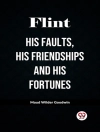“Good God!” I was staring like a lunatic. “Murdered, you say? When?”
“Less than half an hour ago, sir.”
TRAVERS: “I don’t know why I should call this case that of the Magic Mirror for there’s nothing in it reminiscent of “Snow White and the Seven Dwarfs, ” even if the mirror did do a certain amount of magical revelation.
“As a matter of fact the title is my obstinate own. In the first place, of the many murder cases with which I have been officially connected, this one which I am about to relate was easily the most unusual. On the face of it one could at first hardly call it a case at all, for its solution presented no difficulties. Then curious doubts arose, and the obvious was far from what it seemed, and finally the whole thing seemed incapable of any solution at all. Then when the solution did come, it was so absurdly simple that one doubted one’s sanity for not having seen it from the very first.”
The Case of the Magic Mirror was originally published in 1943. This new edition features an introduction by crime fiction historian Curtis Evans.
About the author
Christopher Bush was born Charlie Christmas Bush in Norfolk in 1885. His father was a farm labourer and his mother a milliner. In the early years of his childhood he lived with his aunt and uncle in London before returning to Norfolk aged seven, later winning a scholarship to Thetford Grammar School.
As an adult, Bush worked as a schoolmaster for 27 years, pausing only to fight in World War One, until retiring aged 46 in 1931 to be a full-time novelist. His first novel featuring the eccentric Ludovic Travers was published in 1926, and was followed by 62 additional Travers mysteries. These are all to be republished by Dean Street Press.
Christopher Bush fought again in World War Two, and was elected a member of the prestigious Detection Club. He died in 1973.












